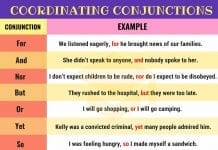
Though you probably haven’t read about them in textbooks of grammar handbooks, you may have heard about a class of verbs called “performative verbs.”
They don’t constitute a grammatical category of their own, but have found interest in fields of linguistic anthropology and philosophy. So what exactly are they? Well, they’re essentially verbs that perform certain actions rather than simply describing them (as verbs conventionally do).
For example, the verb “to do,” which normally expresses the action of doing, can become a performative verb in a wedding ceremony. When the bride and groom say, “I do,” they are performing the act of marriage rather than simply stating it.
The exploration of performative verbs is actually rather modern. The term was first popularized by philosopher J. L. Austin in a series of lectures he gave at Harvard University in 1955 (he called them “performative utterances”).
These lectures later became compiled and published in a book called How to Do Things with Words. The book discusses the nature of performative verbs, how they work, and how pervasive they are in language.
So why do performative verbs matter?
One reason, which was Austin’s reason for talking about them, is that they moved away from the common philosophical idea at the time that language was simply a tool for describing truths and falsities.
In other words, language either stated the truth or lied. It was this true-false dyad of language that philosophers were particularly interested in.
Austin, on the other hand, wanted to prove that language was much more than that. Instead of describing the world, he claimed that language actually did things in the world. When a marrying couple says, “I do,” they are not simply describing an event, but doing or performing it through the action of speaking.
While there is no truth-value to such performative statements, there are certain conditions that they must meet in order to be successful or effective (Austin lists them and calls them “felicity conditions”).
The following is a list of performative verbs in English, which allow the speaker to do something simply by stating it.
Notice that many of these verbs have something to do with expressing something you’re thinking or feeling inside.
In the following perfomative verb examples, the first will be in the first person singular to illustrate a performative verb in action, while the second will describe another person performing a performative verb.
DO (used in Austin’s example of a wedding ceremony)
A: Do you take this man as your lawfully wedded husband?
B: I do.
NAME (used in Austin’s example of naming a ship)
- I name this ship the Queen Elizabeth.
- My parents went three days without naming me after I was born.
PRONOUNCE (another performative verb used in wedding ceremonies)
Officiator: I now pronounce you man and wife.
PROMISE: to assure someone that you will do something in the future
- I promise I’ll never do it again.
- He promised that he would never hold any secrets from me.
GUARANTEE: to promise or assure that something will be true
- I guarantee that you will not regret buying this.
- They always guarantee satisfactory service, but I personally am never satisfied.
APOLOGIZE: to express to someone that you are sorry about something
- I apologize if you were ever offended by anything I said.
- You can never win a fight until the other person apologizes.
ADMIT: to confess to something, usually reluctantly
- I admit that I was wrong, but I still know what I’m talking about.
- How could you ever admit something so outrageous?
CONFESS: to reveal that you are at fault for something or that you have committed a crime
- I confess that I tend to ramble a bit sometimes.
- After hours of interrogation, the suspect finally confessed to the crime.
THANK: to express gratitude about something
- Thank you for giving me this opportunity.
- My boss thanked me the other day for working the extra shifts last minute.
REQUEST: to ask a favor
- We request that you keep all bags below your seats during departure.
- Teresa has requested a leave from work so that she can take care of her baby.
BEG: to plead to someone for something
- I’m begging you to let me come with you to Cancun.
- Cameron has been begging to go to the bathroom for the past ten minutes.
SUGGEST: to put something forward for consideration
- I suggest that we leave sooner than later.
- Everyone suggested different things, but I decided to make my own decision.
RECOMMEND: to put something forward as a good option; to suggest something
- If you want to lose weight, I recommend watching what you eat instead of exercising more.
- Are there any good movies that you recommend?
APPROVE: to agree to or accept something, often officially
- I don’t approve of the way you handled your relationship issues.
- My mother has never approved of the way I dressed.
PERMIT: to allow something to happen
- I permit you to enter the back room, but no one else.
- What exactly are you permitted to do in the army?
ADVISE: to offer suggestions or recommend something
- I advise that you come see me after class if you have an issue to bring up.
- My doctor has been advising me on things to do to keep my blood pressure down.
ORDER: to tell somebody to do something
- Jacob, I order you to go to your room.
- Brian always tries to order people around in group projects.
COMMAND: to give an order to someone
- I command you to do ten pushups every time you make a mistake.
- What did your boss command you to do this time?
SENTENCE: to declare a punishment in court
- I hereby sentence you to three years in prison.
- She was only sentenced to two weeks of community service.
DECLARE: to say or announce something solemnly and emphatically (sometimes used satirically)
- After last night, I do declare that I will never drink again.
- Not surprisingly, the judge declared the defendant guilty.
DENY: to insist that something is not true
- I deny ever even meeting her.
- He says that he can pass this test without studying, but he’s honestly denying the truth.
OBJECT: to openly disagree or express disapproval with something
- I object to everything you just said about Suki.
- Did anyone at the meeting object to your proposal?
FORBID: to refuse to allow something
- I forbid you from telling anyone that I still sleep with a doll.
- The U.S. government forbids anyone under 21 from drinking.
REFUSE: to be unwilling to do something
- I refuse to be called “bossy” for doing my job.
- I tried asking him to perform at the open mic, but he refused.
PREDICT: to say or guess that something will happen in the future
- I don’t predict that they will be together for long.
- Did the palm reader predict anything interesting about your future?
WARN: to tell someone in advance about a possible danger or problem
- I’m warning you now not to date that disaster of a man.
- Nobody warned me that this bus would go past my stop.
QUIT: to leave a job permanently
- You can’t fire me because I quit.
- My friend quit her job from the café last week.
REMIND: to cause someone to remember something
- I’m reminding you now to bring your toothbrush on the trip.
- Did anyone remind Haley that we’re meeting at 3 instead of 4?

























